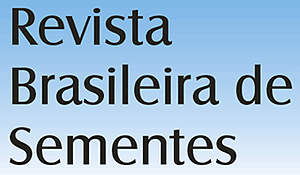Excess salts in the root zone inhibit water uptake by plants, affect nutrient uptake and may result in toxicities due to individual salts in the soil solution. Excess exchangeable sodium in the soil may destroy the soil structure to a point where water penetration and root aeration become impossible. Sodium is also toxic to many plants. Beans (Phaseolus vulgaris L.) are consumed as protein source in northeastern Brazil, although little is known about common bean cultivar tolerance to salinity. The germination of bean cultivars under salt stress was studied. The cultivars 'Carioca' and 'Mulatinho' were submitted to germination test in a germinator at 25ºC, at the Seed Analysis Laboratory of the Brazilian Agricultural Research Corporation unit in the Semi- Arid region (Embrapa Semi Árido), Petrolina, Pernambuco State. These seeds were germinated on "germitest" papers imbibed in distilled water or in 10, 50, 100 e 200 mol.m-3sodium chloride (NaCl) solutions. At the first and second counts of the germination test, normal seedlings were counted, measured, weighed and dried, supplying data for vigor, total germination, fresh matter weight and dry matter weight and seedlings length. Total protein was quantified in cotyledons at 3, 6 and 9 days after sowing. The results indicated that the NaCl content influenced seed germination and concentrations above 50 mol.m-3 decreased germination and seedling growth.
Phaseolus vulgaris; vigor; sodium chloride






